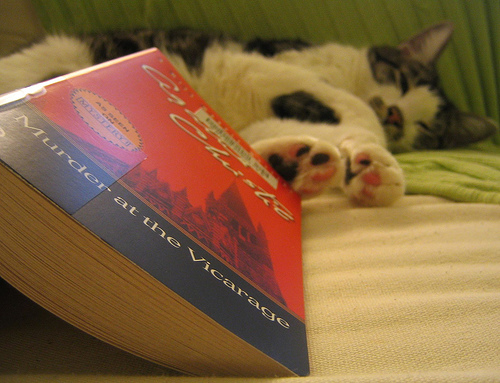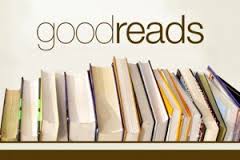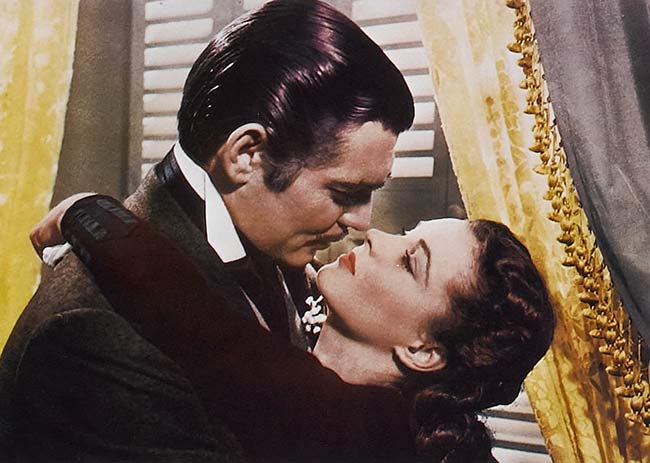Why Authors Need to Know about Book Sales Cycles
For this week’s Throwback Thursday, we’re looking at an excerpt from The Cycles of Book Sales by Anthony Wessel, a book industry veteran and founder of DigitalBookToday.com:
I read indie authors’ blogs about the lack of sales in the past months. Most indie authors have only been through one or maybe two holiday seasons. A book is a product. Just like with most products there is a sales cycle on a year-to-year basis.
Readers are still buying books in the same cycle as they always have. Just on a different medium.
Trend Lines Are Pretty Much the Same
The book industry has sales trend lines that have been consistent for the past forty years. Sales are relatively flat on a week-to-week basis for forty-six weeks out of the year. Slight sales increases are seen on the minor sales holidays. This means approximately the same number of books is being read in any given week compared to the previous year. The marketing efforts of authors and publishers generally do not increase the total number of books that are purchased. The marketing effort is to get the consumer to purchase your product (book) instead of the competitor. A great example is the car industry.
Sales boom for six weeks (holiday season). During the last ten days of the holidays, retail bookstores would often have sales for a day that would equal what they would do in a week during the rest of the year.
The digital book sales for the 2011 holiday was different. People received a lot of Kindles/tablets under the tree. The only problem was that they had no books on them to read. The result was a Christmas sales season that happened in January, February, and March for ebooks. This was very reminiscent of the PC computer days of the ’80’s and ’90’s. Families would get PCs under the tree and then would have to go out after December 25 to purchase software.
A Veritable Roller Coaster
Book sales are relatively stable on a week-to-week basis. Just like grocery stores. Books are a consumable, but people only consume so much. In a nutshell, many new indie authors are not aware of the actual sales cycle of books and maybe got spoiled in Jan./Feb./Mar. Throw in the ever-changing Amazon book algorithm for their book recommendations and indie authors have been on a roller coaster of sales like they have never been on before. Great highs followed by extreme lows regarding sales (and their emotions).
Indie authors should expect flat sales in 2012 from May till December and nothing close to what they had at the beginning of the year. I would suggest authors spend this time period writing and putting marketing plans together to capitalize on the upcoming holiday season. I think there still is at least one more good bump of e-reader sales yet to happen this year. The rumor of an iPad mini-tablet along with other smaller tablets will also increase the number of book lovers reading digital content.
Of course throw in a couple of extremely popular book series over the summer and you can lower an indie author’s sales trend down another 20-30% if their books target any segment of the readers of these series. This is not abnormal in the book industry to have a single book or series to have a major impact on a large segment of books. Think Harry Potter over the course of nine years, or Oprah book club titles. For almost twenty years starting in 1984, the book industry every other year had a Tom Clancy Christmas season, which is a separate blog article in itself.
The Need for a Keen Marketing Plan
The book industry while big and slow already knows what their “big books” are that they will push and sell this holiday season. That was settled before BEA (Book Expo America) in June in NYC. BEA in many ways is used as an announcement of marketing plans. Every major retail chain (including bookstores) has their national meetings for managers in June/July/August. They are presented with the complete marketing plans for the upcoming holiday season including signage/ads/catalogs.
I have seen successes by indie authors in the past year often with a coordinated and extensive marketing plan. While the indie author community is a very supportive group, it still comes down to convincing a consumer to buy your product over another product–which sometimes is from another indie author.
Do you have a twelve-month, four-month, or one-month marketing plan? You can bet there is an competitor that does. Oh by the way, don’t forget to keep writing your next book. Good luck to all indie authors.
Just my 2 cents worth as “Wilson from Home Improvement” looking over the fence into the yard of indie authors.












Thanks for publishing nice educational articles. I enjoyed your input on this subject. Keep them coming…
Nathan Rhodes Author
“The Mysterious Box from Dark Ridge”